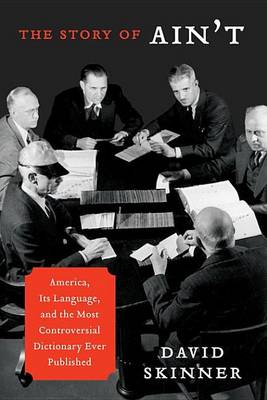"In 1934, Webster's Second was the great gray eminence of American dictionaries, with 600,000 entries and numerous competitors but no rivals. It served as the all-knowing guide to the world of grammar and information, a kind of one-stop reference work. In 1961, Webster's Third came along and ignited an unprecedented controversy in America's newspapers, universities, and living rooms. The new dictionary's editor, Philip Gove, had overhauled Merriam's long held authoritarian principles to create a reference work that had "no traffic with ... artificial notions of correctness or authority. It must be descriptive not prescriptive." Correct use was determined by how the language was actually spoken, and not by "notions of correctness" set by the learned few. Gove's editorial approach had editors and scholars longing for Webster's Second. Reporters across the country sounded off on Gove and his dictionary. The New York Times complained that Webster's had "surrendered to the permissive school that has been busily extending its beachhead on English instruction," the Times called on Merriam to preserve the printing plates for Webster's Second, so that a new start could be made. And soon Dwight MacDonald, a formidable American critic and writer, emerged as Webster's Third's chief nemesis when in the pages of the New Yorker he likened the new dictionary to the end of civilization."--
- ISBN10 0062218093
- ISBN13 9780062218094
- Publish Date 9 October 2012
- Publish Status Active
- Imprint Harper
- Format eBook
- Pages 368
- Language English
